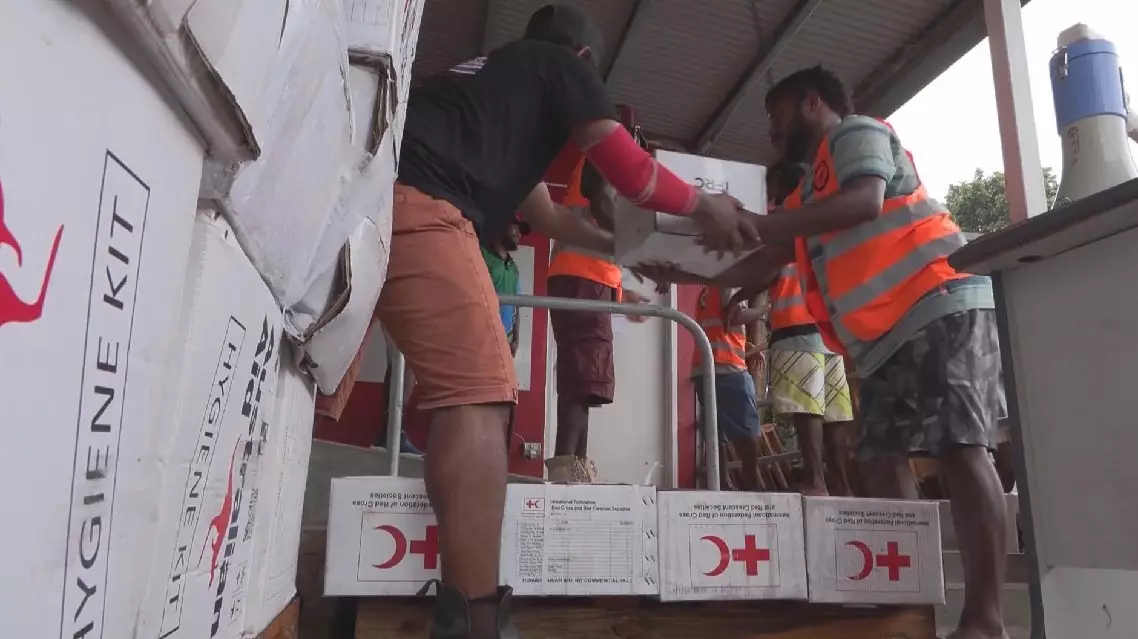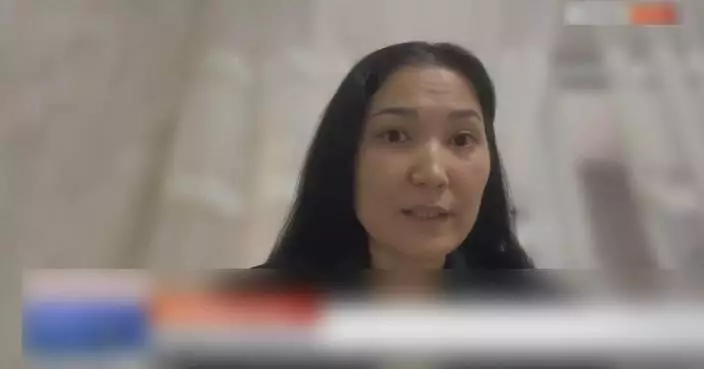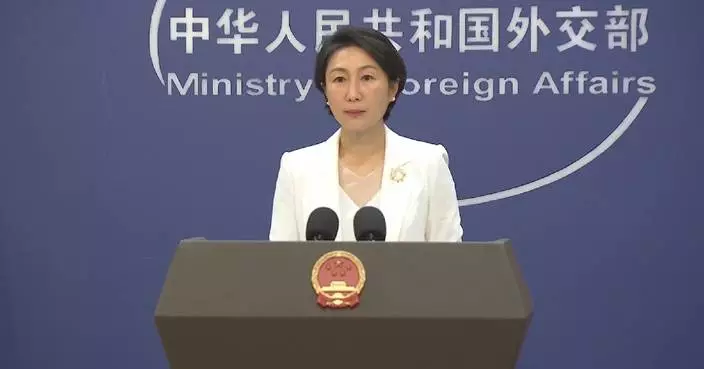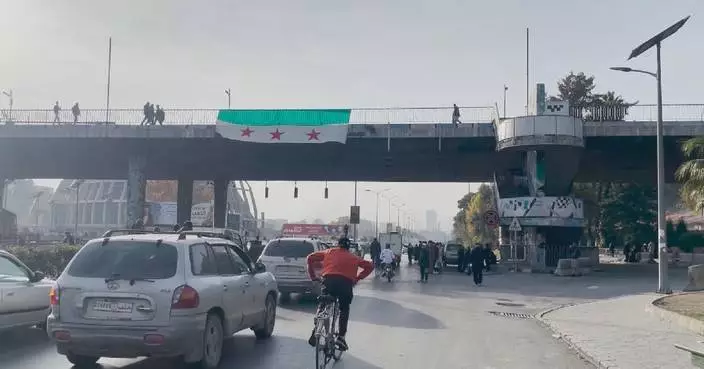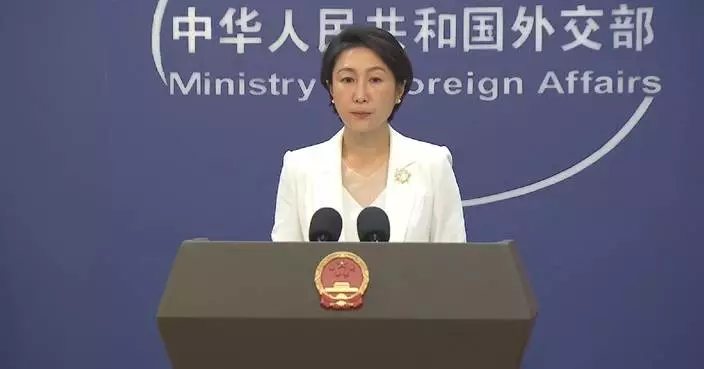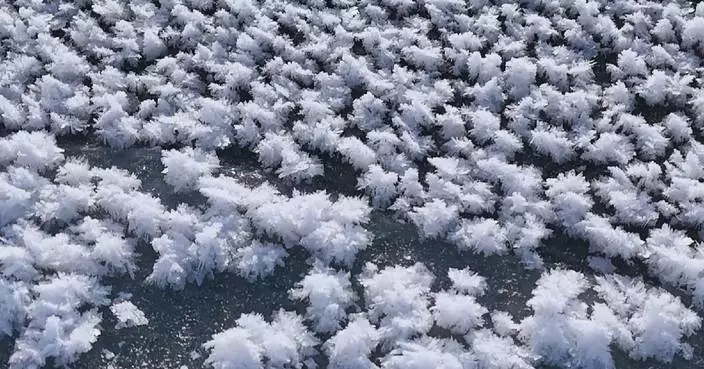An experienced Palestinian journalist who lost one of his legs while reporting from the conflict-ridden Gaza Strip earlier this year has bravely stated his determination to continue his work despite the severe hardships brought by his life-changing injury.
Sami Shehadeh, a TV cameraman for Turkish channel TRT, suffered the horrific fate when he was struck by an Israeli attack on Gaza back in April. Despite the life-altering consequences of that incident, he remains committed to carrying on with his job.
After working in the field of photography for 17 years, Shehadeh has faced many challenging situations and covered numerous wars before, but said the horrors which have unfolded in Gaza since the Israel-Hamas conflict erupted last October have by far been the worst he has ever encountered during his career.
"In the war, we were exposed to many difficulties, the first of which was displacement. It was the first time we experienced it. We were displaced more than once. My house was bombed at the beginning of the war. We could never imagine that we would see such events, not to mention the scale of destruction and massacres we witnessed," he shared in a recent interview with the China Global Television Network (CGTN).
"For the first time, I fear for my life. A large number of journalists have been killed; there is nothing to protect me as a journalist, as the international conventions and laws that protect me are no longer respected by the Israeli occupation," he said.
Shehadeh's world was further turned upside down in mid-April when he was seriously injured after an Israeli shell struck the Nuseirat Camp in central Gaza, catching him and his colleagues off guard.
"We had prepared our equipment and put on our shields and helmets; our car bore the 'PRESS' sign. As soon as we arrived at the Salhi towers in Nusairat camp, I raised the camera and looked left and right. I didn't see any tank or soldier. Nothing indicated that we were in danger, so I asked my colleague to start filming. I hadn't even mouthed the words when a shell was fired at us," he recalled.
Shehadeh's colleagues and others quickly rushed the stricken cameraman away from the site on a makeshift stretcher and helped transfer him to hospital, where he underwent surgery to have his foot amputated.
"I saw it and I was conscious until I entered the operating theater. They loaded me into the car, and we went to the al-Awda Hospital. I said to the doctor, 'Please, doctor, put my foot back.' Thankfully, he could, but I didn't know that my foot was in such a bad state," he said.
After recovering from the loss of his foot, Shehadeh found himself with nowhere to go, eventually ending up in a displacement camp in the southern city of Khan Younis.
Currently, he is trying to leave Gaza to get a prosthetic leg, but the closure of the Rafah crossing with Egypt is blocking his access to much-needed medical care.
"Right now, I need help with any work. I need help with everything. However, I will not be stopped from returning to complete my work," he said with resolve.
According to a UN committee, over the past year or so, more than 130 Palestinian journalists have been killed by Israeli forces in Gaza.
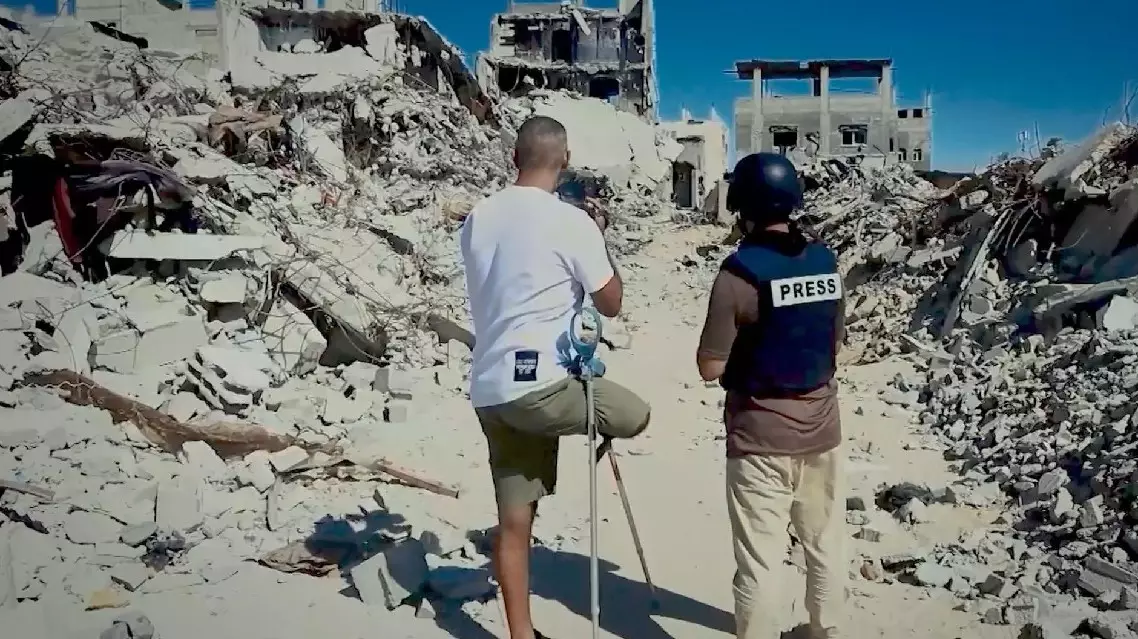
Injured Palestinian journalist bravely vows to continue work despite having leg amputated


